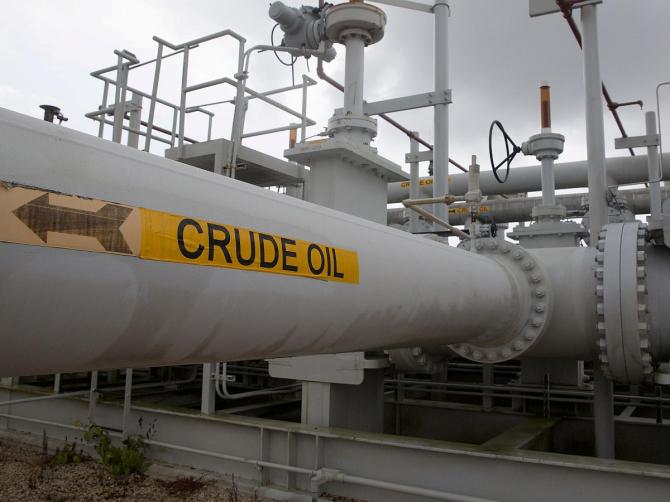There is positive correlation between crude oil prices and Indian equities and investors can expect more upside after the recent rally in Brent crude price.

The Indian equity markets corrected on Wednesday after hitting a lifetime high earlier in the day.
The benchmark Nifty50 index ended with losses of around 200 points, the biggest one-day fall in nearly a month.
This sharp reversal was attributed to a rally in crude oil prices.
On Wednesday, Brent crude price hit an eight-month high of $48 to a barrel as traders bet on a faster-than-expected recovery in energy demand and a likely production cut by members of the Organization of Petroleum Exporting Countries (Opec) and Russia later this month.
 Some analysts believe higher crude oil prices could significantly increase India’s energy import bill creating pressure on the current account balance, apart from raising input costs for companies in sectors ranging from metals and mining, chemicals, paints, personal care, cement, petrochemicals, plastics and agro-chemicals.
Some analysts believe higher crude oil prices could significantly increase India’s energy import bill creating pressure on the current account balance, apart from raising input costs for companies in sectors ranging from metals and mining, chemicals, paints, personal care, cement, petrochemicals, plastics and agro-chemicals.
This will reverse the gains India Inc has seen from lower energy and commodity prices that accrued in the two previous quarters.
Lower input prices cushioned the blow to corporate earnings from Covid-19 and companies reported good margins and net profits in Q2FY21 despite lower volumes and revenues.
The rise in prices has spooked equity investors, who were betting on further improvement in corporate earnings in Q3 and beyond.
Many analysts, however, see the fall in stock prices as a short-term sell-off by investors looking for an opportunity to book profits after a 12 per cent or 1,500 points rally in the Nifty50 in November before the correction.
“It is a technical correction in the market after a stronger-than-expected rally in stock prices during November.
"This is normal in any rally and we should not read too much into it,” says Dhananjay Sinha, research head, Systematix Institutional Research.
In fact, he says there is positive correlation between crude oil prices and Indian equities and investors can expect more upside after the recent rally in Brent crude price.
“Crude oil prices are now up nearly two-and-a-half times from their March lows while Nifty50 is up nearly 70 per cent during the period.
"So, both are moving together and I expect this correlation to remain intact even in future,” he adds.
He has a point. Over the past five years, crude oil prices and the Nifty50 have mostly moved in lockstep, with the latter acting as an indicator of the forward movement in equity markets.
The correlation co-efficient between the two variables since January 2015 is 0.45 (See the charts).
The data doesn’t suggest a negative impact of higher crude oil prices on corporate earnings either. In fact, there is positive correlation between crude oil price and Nifty’s underlying earnings per share (EPS).
Analysts attribute this counterintuitive trend to the macroeconomic impact of higher crude oil prices.
“When crude oil prices recover from lows, as they are doing now, it signals an improvement in global demand conditions and an end of deflationary cycle.
"This is positive for the overall economic growth and corporate earnings so investors should take the recent rally in energy prices positively,” says G Chokkalingam, founder and managing director of Equinomics Research and Advisory Services.
According to him, crude oil prices will hurt India’s economic growth and corporate earnings only if they breach $80-90 a barrel, which doesn’t seem likely in the current environment.
By this logic, any crude oil related correction in the equity markets is a buying opportunity for long-term investors and traders.
Analysts also say higher crude oil prices are expected to add to the kitty of sovereign wealth funds of oil exporting countries, which could improve capital flows to emerging markets like India.
Higher energy prices are also likely to raise India’s exports to oil-rich countries in the Persian Gulf, apart from improving remittances from those countries. These could act as tailwinds for the Indian economy and equity markets.
Photograph: Richard Carson/Reuters












 © 2025
© 2025